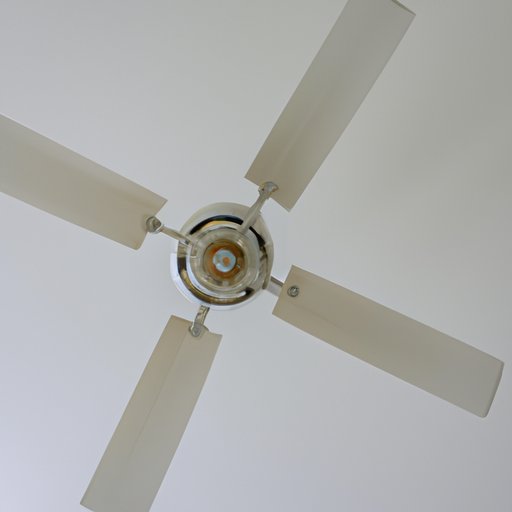
How to Balance a Ceiling Fan: A Step-by-Step Guide
Ceiling fans are an excellent investment for any household, providing efficient cooling, and ventilation while reducing energy costs. Although they are an excellent addition to any room, unbalanced ceiling fans can cause damage and be a nuisance for homeowners. A poorly balanced ceiling fan can create unnecessary vibrations and make a lot of noise, making it a frustrating experience for you and those around you. If your fan is unbalanced, this article will provide you with a step-by-step guide on how to balance a ceiling fan.
The Importance of Ceiling Fan Balancing
Balancing a ceiling fan is as crucial as having it installed correctly. Over time, as a fan is in use, it can become less balanced due to the accumulation of dust, uneven blade wear, and loosened screws. A balanced ceiling fan has many benefits, including reducing the noise level of the fan and providing better energy efficiency. A fan that is off-balance vibrates excessively and creates additional strain on its mechanical and electrical components, reducing its lifespan.
Identifying an Unbalanced Fan
The first step in balancing your ceiling fan is to check if it is unbalanced. Unbalanced ceiling fans often cause wobbling or shaking during operation. You may feel an unusual noise or movement, especially when the fan is at high speed. If you notice any of these signs, it’s likely that your ceiling fan needs balancing.
Tools Required for Ceiling Fan Balancing
You’ll need a few tools to balance your ceiling fan. The tools are easy to find and have at home. They include:
- Ladder
- Phillips-head screwdriver
- A fabric that cleans surfaces
- A ruler or measuring tape
- A ceiling fan balancing kit (Optional)
It’s important to emphasise safety when carrying out any electrical work. Always turn off the fan before you begin to balance it.
Step-by-Step Guide to Balancing a Ceiling Fan
Here is a step-by-step guide on how to balance a ceiling fan:
- Turn Off the Fan – Turn off the fan and allow it to come to a complete stop.
- Unscrew the Fan Blades – Using a Phillips-head screwdriver, remove the screws that attach the fan blades to the motor.
- Balance the Fan Blades – Use a ceiling fan balancing kit or measuring tape to balance the blades by checking the distance from the ceiling to the end of the blades. If all blades have the same distance, then they are balanced. Unscrew the clips on the blade holder, move the weight to the centre of the blade holder, and retighten to adjust each blade’s weight.
- Check Each Blade – After adjusting each blade weight, fit each blade back onto the motor before repositioning the next blade.
- Use a Clean Cloth – Clean the blades of the ceiling fan and make sure the screw holes are free of debris or dirt.
- Tighten the Screws – Ensuring the screws are all equally tight to form a level plane, use a screwdriver to tighten any loose screws.
Once you’ve completed the process above, turn the fan back on and observe the fan’s speed rotation. If it still wobbles after making the adjustments, redo the process above to ensure all blades’ weight are distributed evenly.
Troubleshooting during Balancing
Sometimes, some of the blades on a ceiling fan cannot be adjusted. If that’s the case, try rotating the blade and see if it influences the shaking or movement. Also, it’s crucial to ensure the screws are not loose after adjustments are made.
Importance of Regular Maintenance
Regular maintenance can help keep your fan balanced and working correctly. By cleaning the blades and motor regularly, you can keep debris and dust from accumulating on the blades. Not only does cleaning help in balancing the fan, but it also prolongs the lifespan of the motor.
Additional Tips for Optimizing Fan Performance
Investing in a high-quality ceiling fan will benefit you in several ways. For example, they are more energy-efficient, more silent, and longer-lasting.
Conclusion
Ceiling fans provide excellent value for money, and with the proper installation and periodic maintenance, can last for many years. Balancing your ceiling fan aids in its efficiency, reduces noise and can improve its overall lifespan. We hope our comprehensive guide has helped you understand how to balance a ceiling fan. Don’t forget also to maintain it periodically.





